BE THE SOLUTION MAGAZINE

Gun Violence in America
How BSOS Researchers are Addressing a Grand Challenge


How BSOS Researchers are Addressing a Grand Challenge
Dear Friends of BSOS,
I recently had the pleasure of presiding over BSOS commencement ceremonies, and also presenting BSOS graduates during the university commencement ceremony. Reflecting on another dynamic academic year, I am so proud of our newest alumni, who are joining a network of BSOS Terps that is 85,000 strong.
The world that our graduates are stepping into is full of complexities, and of possibilities. When challenges arise, I am reminded that I am part of a community dedicated to finding solutions.
As you’ll see in this issue, BSOS students, alumni, faculty, staff and friends are addressing the grand challenges of our times, from every angle. These include the epidemic of gun violence in the United States, building a stronger democracy, innovations in food security, and so much more. We are making connections and building communities. We are working to improve the human condition.
Here at UMD, we often say that Terps are “fearless.” I like to think that BSOS Terps are fearlessly human. When we prioritize the human experience, we find possibilities and new avenues of exploration. I hope as you read more about what’s happening in our college, you’ll be as proud of our fearlessly human BSOS community as I am.

Sincerely,
Susan M. Rivera

Dean and Professor, College of Behavioral and Social Sciences University of Maryland
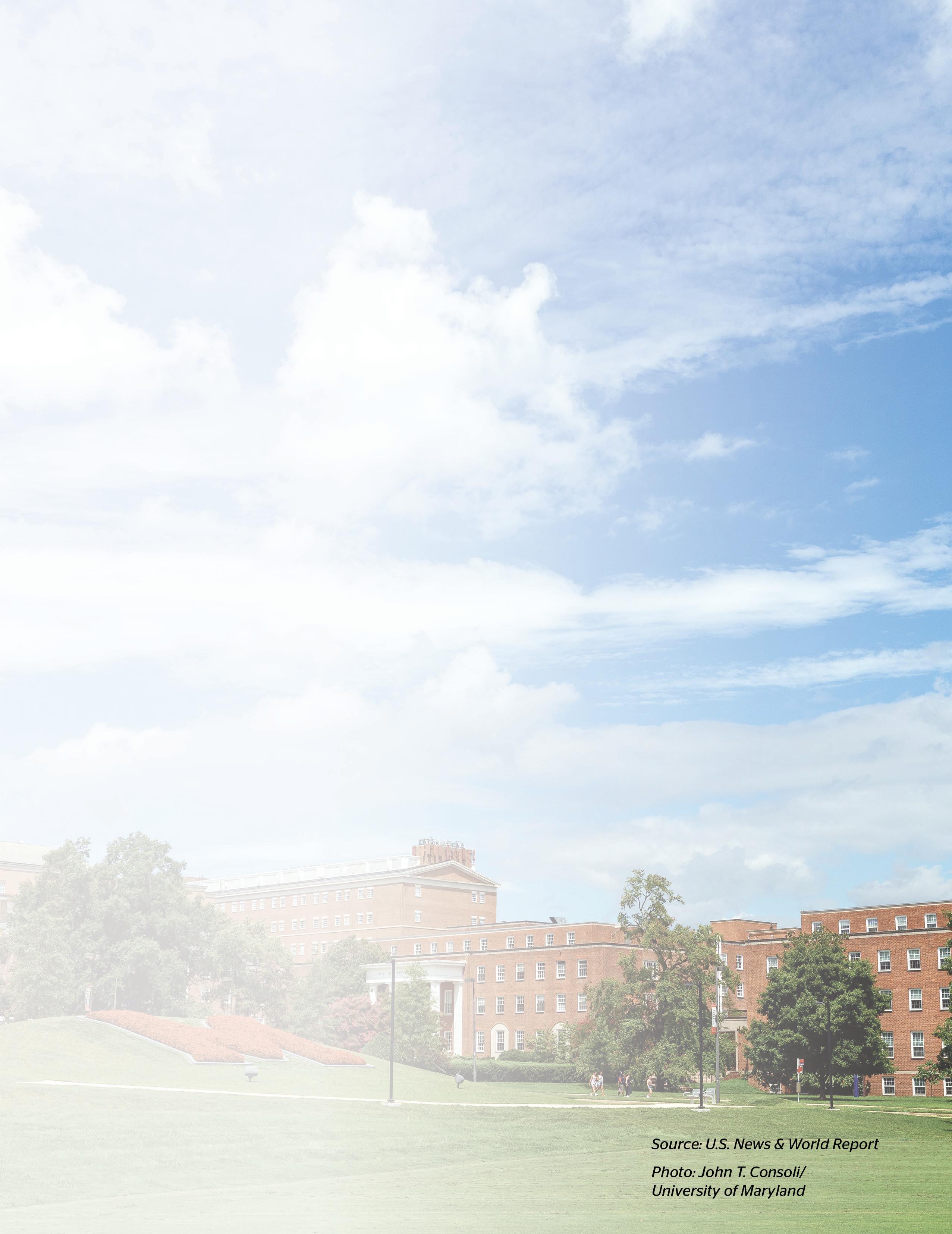
MANY OF OUR GRADUATE PROGRAMS AND AREAS OF SPECIALTY ARE RANKED AMONG THE BEST IN THE NATION, AND IN THE WORLD: In FY23, BSOS brought in $64 million in external funding for research, service and training. CRIMINOLOGY
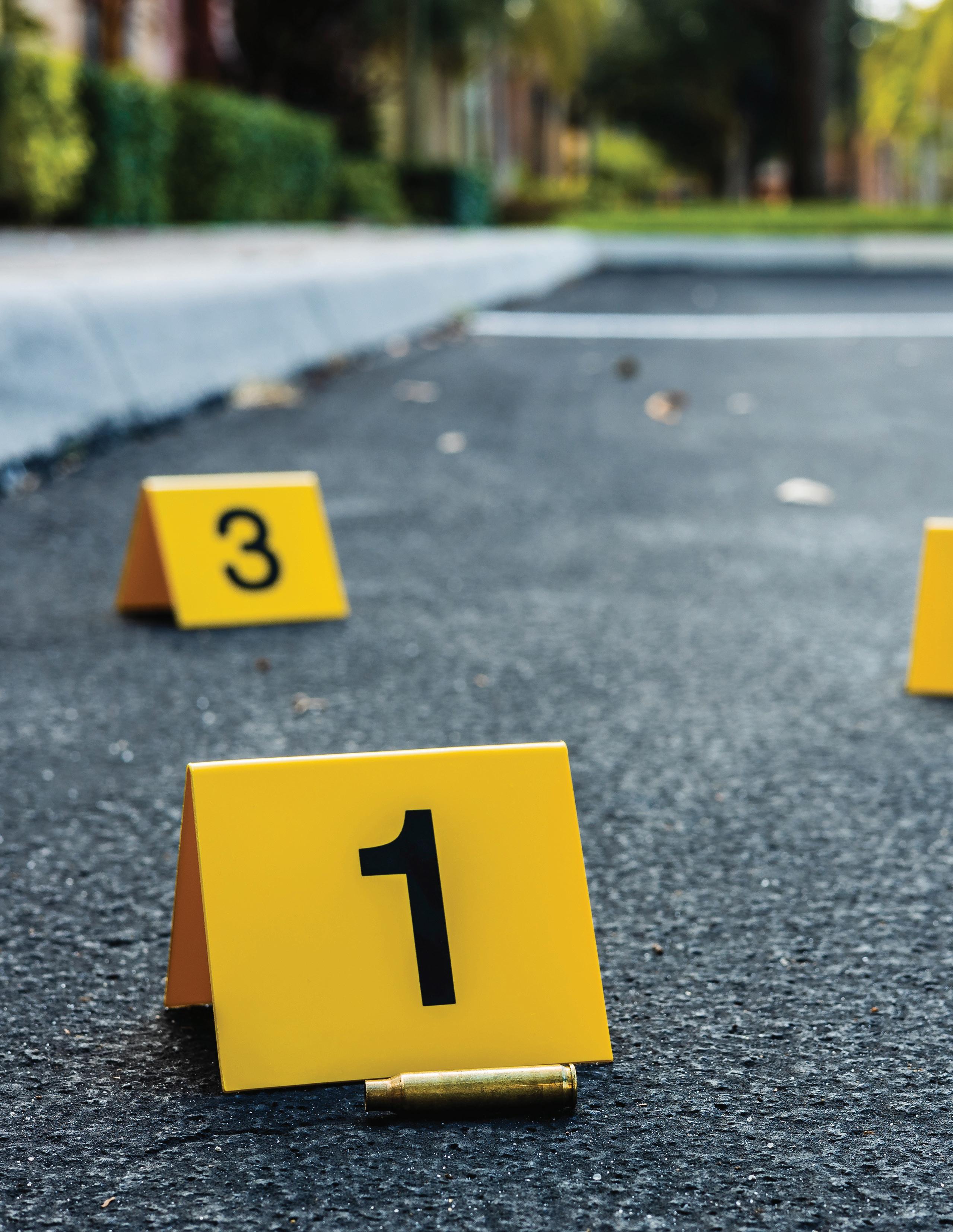

According to the Centers for Disease Control and Prevention, more than 48,000 people in the United States died from a firearm injury in 2022. That brings the daily number of lives lost to gun violence to roughly 132.
At the University of Maryland and beyond, gun violence in America is recognized as one of the most pressing grand challenges of our time—and BSOS researchers are addressing this problem from multiple angles.

Joseph B. Richardson is co-director of UMD’s Prevent Gun Violence: Research, Empowerment, Strategies & Solutions (PROGRESS) Initiative, which uses a multidisciplinary, community-empowerment approach to reduce gun violence.
PROGRESS supports equitable research partnerships between gun violence researchers at UMD, community-based violence prevention/intervention programs, and community members in the National Capital Region. Richardson’s co-director is Dr. Woodie Kessel of the School of Public Health.
Since its November 2023 debut, PROGRESS has launched a Distinguished Speaker Series to convene gun violence scholars and practitioners from diverse personal and professional backgrounds. PROGRESS also introduced a seed grant funding program in the spring to support three projects challenging campus researchers and community-based organizations to find innovative ways to combat gun violence.
Richardson is also leading multiple research projects: two in Washington, D.C.; two in Baltimore; and one in Philadelphia.

Thomas Abt is the founding director of the Center for the Study and Practice of Violence Reduction, also known as the Violence Reduction Center (VRC), which provides guidance to policymakers and practitioners on choosing the right combination of evidence-informed anti-violence strategies for their jurisdictions.
The VRC travels to potential partner cities to convene multi-day meetings with local leaders in government, law enforcement officials, community advocates and activists, and academics. The VRC presents evidence-informed strategies for combating gun violence, and facilitates conversations in which attendees select strategies to benefit their community. The VRC and government officials then create an action plan.
Three cities have worked with the VRC so far: Knoxville, Tennessee; Boston; and St. Louis. Since working with the VRC, between 2022 and 2023, Knoxville has seen murders decrease by 33% and nonfatal shootings by 12%. Boston has suffered just three homicides to date in 2024, an 82% reduction compared to the same period last year. St. Louis recently began implementing its new plan. By the end of 2024, the VRC also plans to publish a systematic meta-review of violence reduction strategies, and adapt its results into a public, web-accessible registry.

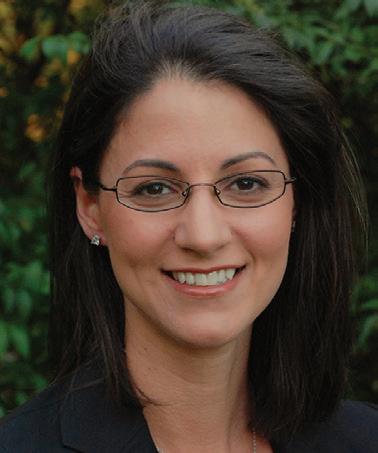
Bianca Bersani is the director of the Maryland Crime Research and Innovation Center (MCRIC), which works with law enforcement, community groups, and state and local officials to provide Maryland jurisdictions and communities with data analysis, evaluation, and research expertise to support public safety efforts.
MCRIC has spent the last four years helping the Greater Baybrook Alliance reduce gun violence in Baltimore City’s Curtis Bay and Brooklyn neighborhoods, and in Anne Arundel County’s Brooklyn Park neighborhood.
Bersani and her research team—which included CCJS Associate Professor Greg Midgette—conducted a needsbased assessment of the community. They reviewed police department data to determine which crimes are most common in certain areas, and interviewed residents, business owners, police officers, and health service providers to understand their top concerns for the community. The research team then helped develop and guide a three-year violence reduction plan.
For the next two years, a MCRIC team member will also work as an “embedded analyst” within the Prince George’s County Police Department to help the department increase understanding of the spatial concentration of crime in the county, particularly which spaces are hot spots for gun violence.
Learn more at go.umd.edu/MCRIC
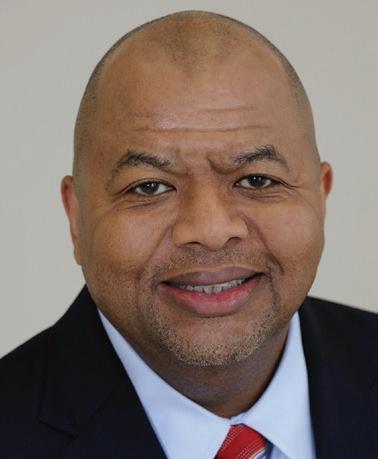
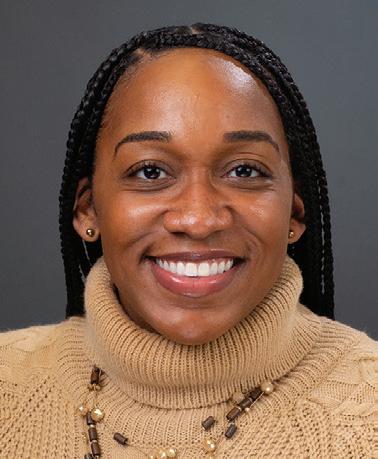
rooklynn Hitchens grew up in the area where much of her early gun violence research is focused: Wilmington, Delaware.
Rod Brunson has conducted research on neighborhood disadvantage, policecommunity relations, delinquent groups, youth violence, and gun ownership for decades.
In 2022, Preventive Medicine published the results of a firearm behavior study Brunson conducted with former graduate student Brian Wade—now a Senior Data Scientist at the University of Pennsylvania’s Crime and Justice Policy Lab—and CCJS Assistant Professor Brooklynn Hitchens The research team conducted face-to-face interviews with 51 Black male residents of Brooklyn and Bronx, New York who had been shot or shot at.
They found that individuals at the greatest risk of experiencing gun violence generally store firearms in unsecured, easyto-access locations, which contributes to increased feelings of community unease, spurs individuals’ desire to arm themselves and peers, and raises the likelihood of fatal and nonfatal shootings.
Brunson and Wade conducted a similar study with males in Newark, New Jersey. Brunson and Wade hope to publish the results of that study this summer.
As a graduate student, Hitchens surveyed and interviewed more than 800 Black men and women who had been involved in illegal activity in Wilmington in some capacity—and shares insights in her co-written book Murder Town, USA: Homicide, Structural Violence, and Activism in Wilmington (Rutgers University Press, 2023).
Hitchens plans to write her second book this summer, the contents of which will focus on Black women’s experiences as direct and indirect victims of gun violence.
Hitchens has taken her multi-method, “participatory action research” approach to other cities as well. This spring, Hitchens finished collecting data for a four-city study examining high-risk gun carrying among Black youth (ages 14-24) in Philadelphia, Detroit, Brooklyn, and Wilmington. She hopes to publish multiple research papers on her findings in the years to come.
Additionally, following earlier research on Black perceptions of the Baltimore Police Department, Hitchens and a multidisciplinary team of campus collaborators published the results of a recent study that found that 22%-57% of Baltimore 911 calls could be diverted to civilian responders, freeing police officer time and potentially improving police-community relations. •

Heading into the 2024 presidential election, several threats to American democracy are clear to Professor Mike Hanmer of the Department of Government and Politics, such as the barriers that many Americans face when voting, and deep political divisions among the public. He conducts research and is engaging partners to better understand these threats, especially in his role as the director of UMD’s Center for Democracy and Civic Engagement (CDCE)
CDCE collaborates with policymakers, journalists, and community leaders, with guidance from Chief Strategist Sam Novey. Through CDCE, UMD scholars from across disciplines contribute expertise to inform strategy, and to find new solutions to strengthening democracy.
CDCE co-founded the Vote 16 Research Network, which engages activists as well as scholars worldwide to understand what happens when communities lower the
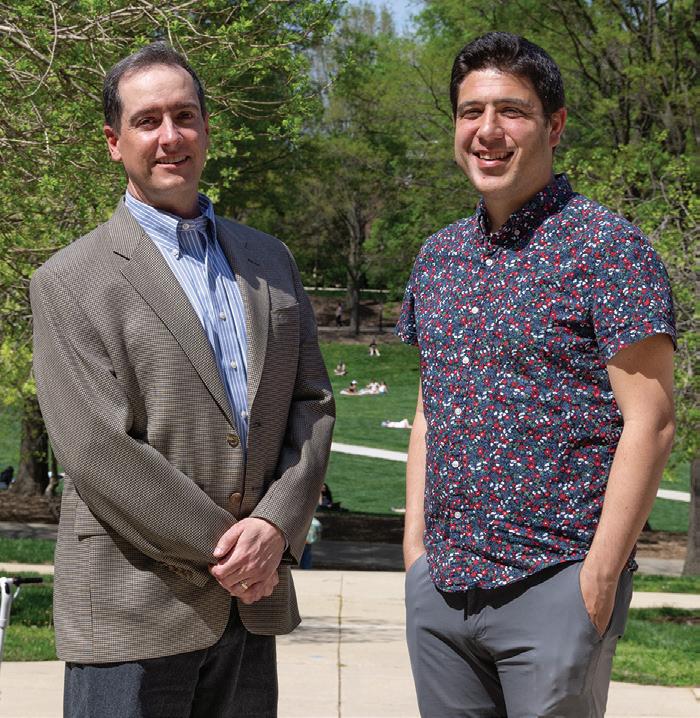
voting age to 16. Many countries have experimented with lowering the voting age, and so have several American communities—including seven communities in the state of Maryland.
The group recently published a Vote 16 Implementation Guide for local election officials, and conducted surveys testing how Americans respond to different messages about lowering the voting age. These actions provide valuable information on how Vote 16 policies are perceived and implemented in different communities.
Professor Mike Hanmer (left) and CDCE Chief Strategist Sam Novey; photo by Kevin Roach
CDCE has also mobilized high schools and college campuses to assist new voters. This work is part of a Grand Challenges Impact Award that supports the Maryland Democracy Initiative, a collaboration between BSOS, the College of Education, the Philip Merrill College of Journalism, and the School of Public Policy.
“We are working with people who are nonpartisan, who believe in bipartisan collaboration, who are advocates for democracy, and who are concerned citizens,” Hanmer said. “When you take the time to build the relationships, you create the trust to have honest conversations on many issues and build toward solutions.”
Especially when working with high school and college students, Hanmer said the impact of voting at a young age can last a lifetime. “Research shows that voting is ‘habit-forming,’ and that not voting is ‘habit-forming,’” Hanmer said. “Schools are some of the most effective and equitable ways to engage people.”
Working with VoteRiders, Public Wise, and the Brennan Center for Justice, CDCE conducted a survey about which forms of identification citizens have, and what members of the public know about the laws on voter identification. This work guides strategies that help people who need IDs get them, and to get registered and ready to vote.
“It’s clear that people need assistance getting IDs, and we want to help meet that need,” Hanmer said. “Our new survey is the first since 2006 focused on this issue, and it was designed to find out how many people lack the ID they need, which groups are most in need of IDs, and how much the public is confused about what ID they might need in their state in order to vote.”
Hanmer and Novey have observed “a scramble” when newly elected officials at all levels of government must quickly hire teams, meet constituents, and take office just weeks after elections are over.
Hanmer and Novey worked with government transition experts to develop a Civic Transition Toolkit, a resource available to members of any party to help them run an inclusive and effective government transition that can inspire trust from all members of the public.
The toolkit is a “one-stop shop” containing information that is useful to posting and filling government jobs, as well as advice on how to gain constituent input even before a new leader takes office. Transition team leaders for Maryland Gov. Wes Moore and Lt. Gov. Aruna Miller worked closely with CDCE to build the toolkit.
“We see this resource as a way to give a voice to the public, who are eager to have their needs known and met by officials coming into new roles,” Novey said. “We hope this tool makes government transitions more effective.”
Hanmer and his collaborators produce The Washington Post-UMD Poll, which sheds light on Americans’ often complex and polarized views on timely topics. For example, an iteration of this poll found that sympathy for the rioters involved in the January 6, 2021, attack on the U.S. Capitol has grown in the years since that violent day.
The poll continues to show a divided electorate, and Hanmer said that no matter who ultimately wins the presidential election in November, he does anticipate controversy and contestation.
“I think it’s going to be close in a handful of states. It’s going to be very important how we talk about and respect election
administrators. They’ve been in the background for a long time, but now they are at the forefront—in some cases, they are being harassed,” Hanmer said. “The lack of trust in our institutions is a big issue, and we’re figuring out ways to deal with that and address it. It’s important to work in nonpartisan ways to protect our democracy.” •
“The lack of trust in our institutions is a big issue, and we’re figuring out ways to deal with that and address it. It’s important to work in nonpartisan ways to protect our democracy.” — Professor Mike Hanmer
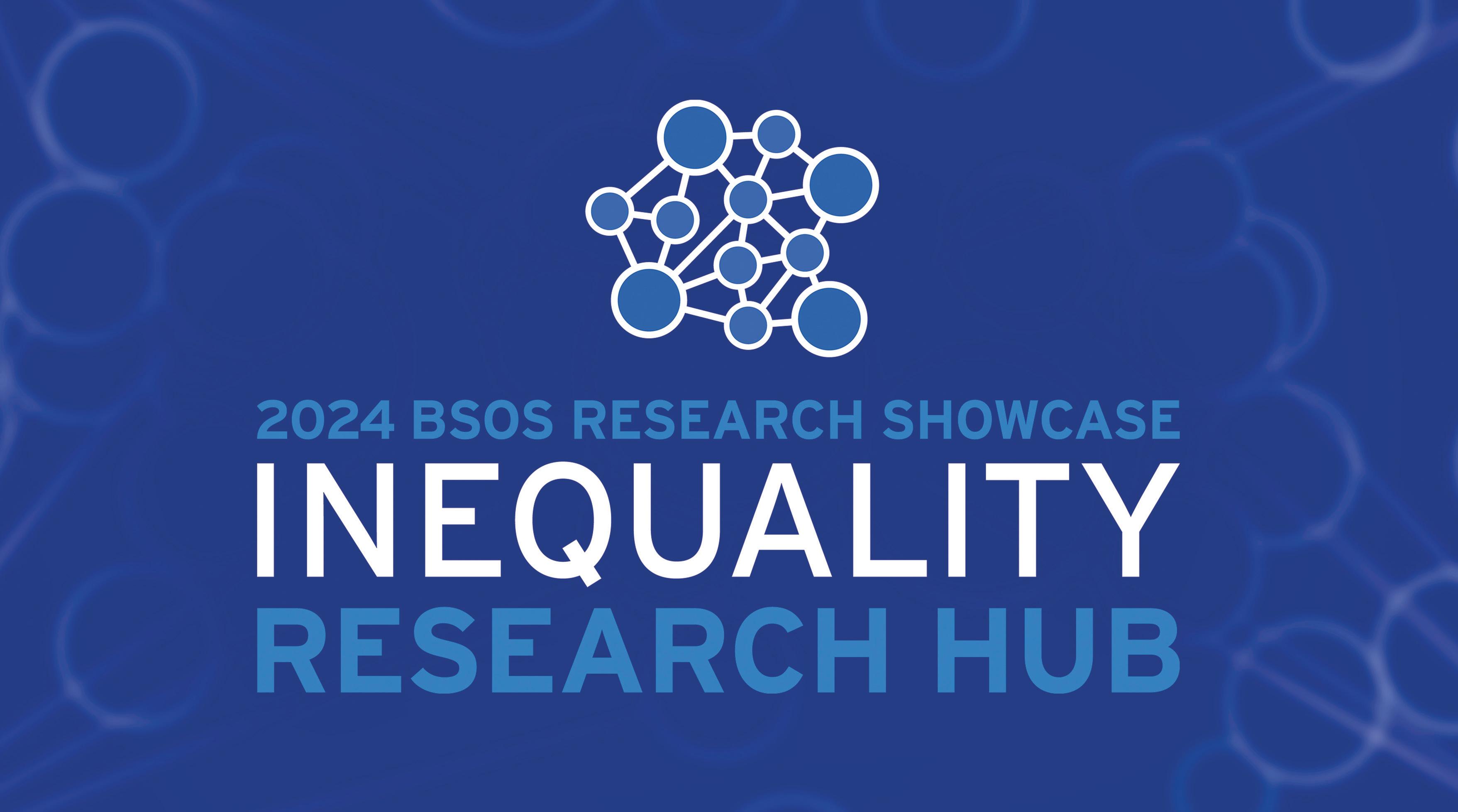
Presenting work at an immersive research showcase, BSOS demonstrated the multidisciplinary ways that its community is addressing one of the grand challenges of our time—inequality.
The event brought to life the BSOS Inequality Research Hub and featured more than 40 poster presentations and videos across inequality themes, including Access to Institutions and Resources; Health and Well-Being; Identity-Related Stigma; and Comparative and International Research.
During the event, held in the Grand Ballroom of the Adele H. Stamp Student Union on May 2, more than 400 attendees from across campus—and across Maryland, D.C., and beyond—learned about inequality research in a multimedia exhibit.
“Our faculty and student researchers are passionately committed to understanding the sources and dimensions of a wide range of inequalities, as well as ways to mitigate them,” Dean Susan Rivera said. “We know that in so many ways and in so many places, the playing field is not level. Oftentimes, the people who bear the burden are not the same ones who reap the benefits. Our research speaks to the dangers of denying or ignoring these facts, and the work we do expands views of their conditions and contexts.”

The posters, videos and presentations were organized in alcoves according to theme, with projects from multiple disciplines exhibited. The research covered many topics, such as advancing autism inclusion in the workplace; how low-income uninsured families navigate social inequalities in the healthcare safety net; and reducing firearm-related violence using a multidisciplinary, community-based and translational science approach.
“The theme of inequality cuts across multiple domains of everyday life. Researchers in our college are doing cutting-edge work that directly impacts our local, national and global communities,” said Associate Dean of Research and Graduate Education Jean McGloin. “We are a leading interdisciplinary voice, and this event provided an opportunity to showcase our research in a way that translated outward and facilitated collaboration.”
The showcase offered attendees the opportunity to directly interact with researchers and learn more about their work.
Guests, funders and collaborators at the event included UMD Board of Trustees members, faculty from other schools and colleges across UMD, as well as representatives from the Russell Sage Foundation, Department of Justice, the National Institutes of Health, members of the Maryland General Assembly, and many more.
When addressing the crowd, President Darryll J. Pines said that the research projects on display were “making a real difference in the lives of real people.”
“BSOS is leading the moment when it comes to work that addresses the grand challenges of our time, from climate change to gun violence to threats to our democracy. This work makes a difference for everyone,” Pines said.
The showcase was co-sponsored by UMD’s Division of Research and the Oak Ridge Associated Universities. •

Visit the Inequality Research Hub: go.umd.edu/ bsosresearchhubs
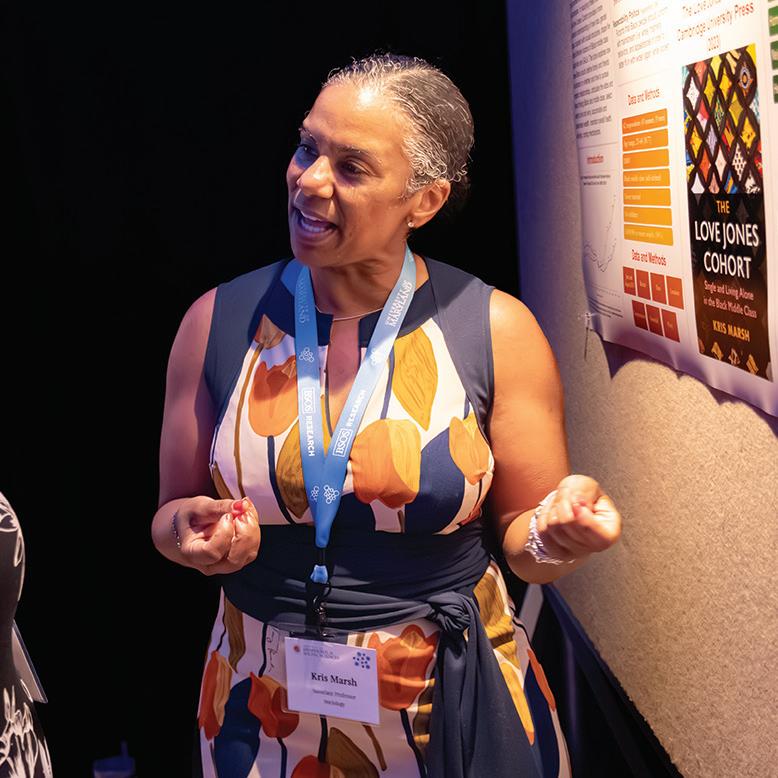

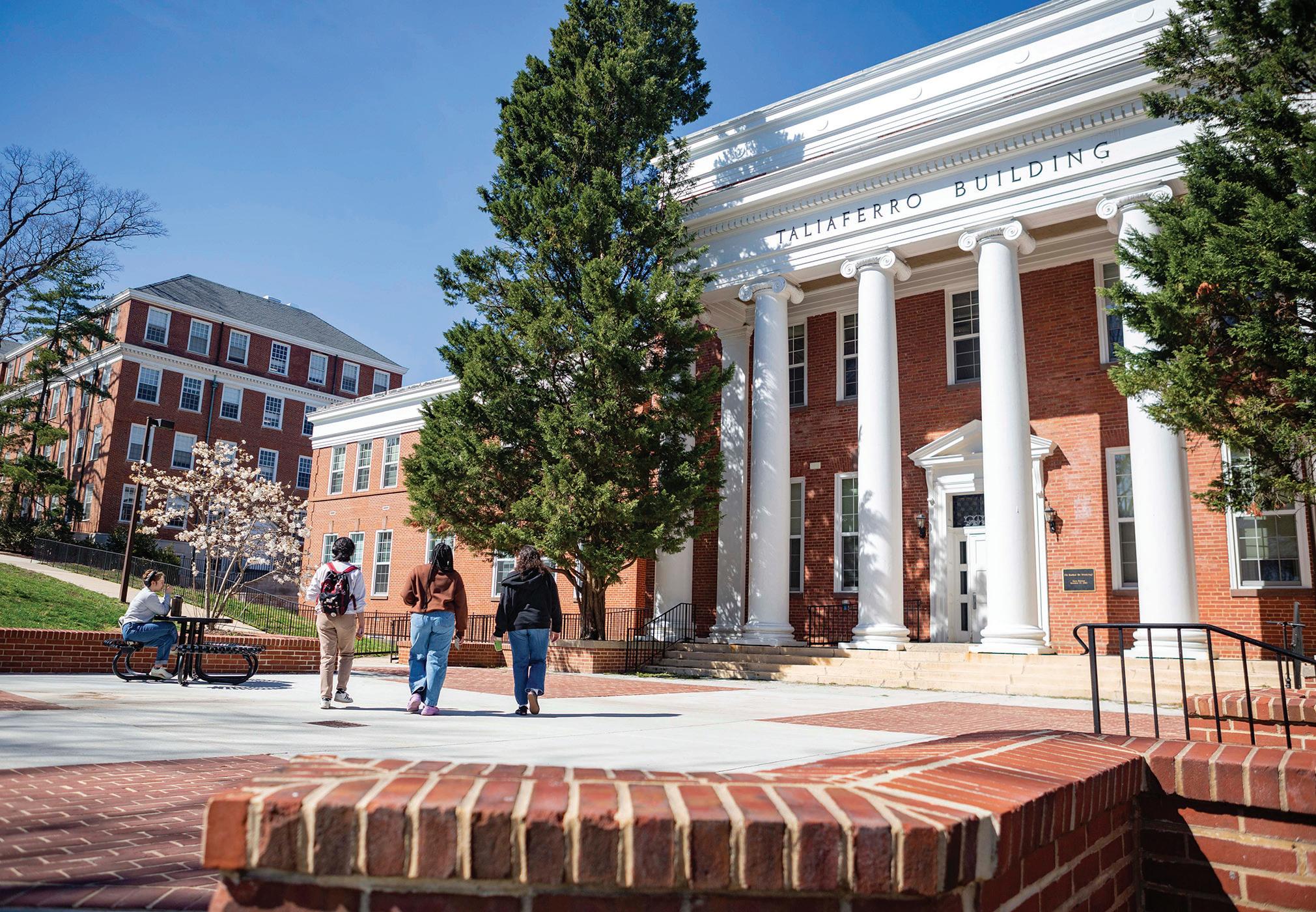
THE DEPARTMENT OF AFRICAN AMERICAN STUDIES has changed its name to the Department of African American and Africana Studies (AAAS) in recognition of its broadened mission.
“The department’s new name better reflects the research interests of the faculty, and, very importantly, the diversity of Black students at UMD,” said Professor Sangeetha Madhavan, chair of AAAS. “I am excited because we have been considering this for a long time, and the name captures both the storied history of the department, as well as new areas of research. This change also brings us in line with other African American and Africana studies departments around the country.”
The department promotes research, scholarship, and teaching on a range of issues, including gun violence, race and voting behavior, race and immigration, Black families and children’s development, and the sociology of Africa, to name just a few. The department also focuses on research rooted in the humanities. •
LECTURER GEORGE KINTIBA, coordinator for the African Studies Minor, spent part of 2023 in Congo collecting data for a research project on young African inventors of the late-20th and 21st centuries.
By way of interviews with the young inventors, Kintiba has been exploring the socio-historical reasons that inspired the individuals to create their inventions, and the useful purposes that those inventions now serve.
Odette Sangupamba Mwilu, dean and professor at the College of Computer Sciences at the Catholic University of Congo in Kinshasa, is working with Kintiba on the project. Mwilu’s contributions concern the inventors’ understanding of information technology, and how that understanding played a part in the development and success of their inventions.
Kintiba says his course, “AASP398Z: Selected Topics in the African Diaspora; Black Contributions to History” inspired him to pursue the project.
“The course challenges students to learn about the contributions of Black inventors from ancient Egypt to Africa in the late 1800s, to the modern world. It also challenges students to begin to think of themselves as inventors,” Kintiba said.
Kintiba and Mwilu hope to share the insights they glean from the project in a forthcoming book. •
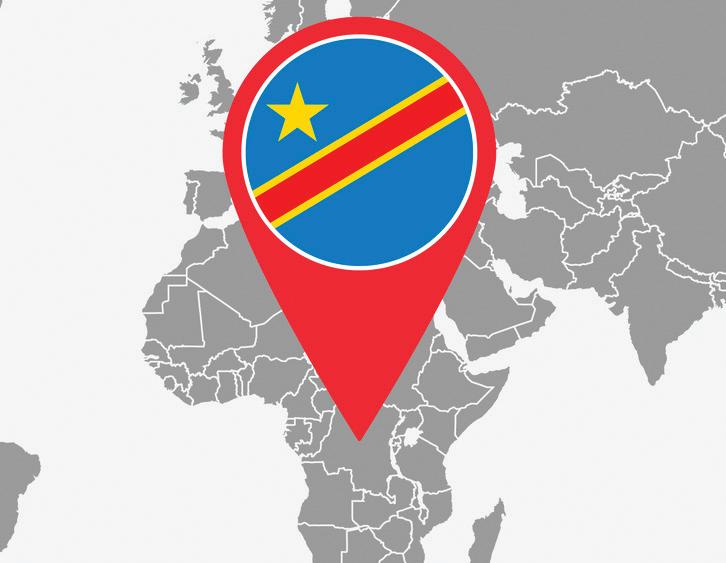
ACROSS THE COUNTRY, vending machines are being repurposed to help save lives. They are being stocked with naloxone, fentanyl test strips, sanitation supplies, and other harm reduction tools.
Associate Professor Andrea M. López of the Department of Anthropology launched a study of the quantitative and qualitative impacts of three of D.C.’s harm reduction vending machines this spring, in partnership with the machines’ operator, nonprofit organization Honoring Individual Power and Strength (HIPS).
“We know from public health evidence that more naloxone is always a good thing in terms of reducing harm,” López said. “We hope to assess experiences and perceptions of the machines from the perspective of people who use them, as well as community members in the area. A secondary goal is to continue to educate about the potential public health benefits of these interventions, and the impact of harm reduction interventions and services more broadly.”
Part of the new study involves interviews with neighborhood business owners, residents, and other community stakeholders, in addition to the individuals who use the machines.
THE SOCIETY FOR HISTORICAL ARCHAEOLOGY (SHA) has named Department of Anthropology Professor Paul Shackel as the 2025 recipient of the J.C. Harrington Medal, the highest honor given by the Society in recognition of a person’s lifetime of contributions to the discipline.
“I am honored to know that so many professional archaeologists supported my nomination for the J.C. Harrington Award,” Shackel said. “While the medal is an award for lifetime contributions to the

Another part of the study, led by Associate Professor Greg Midgette of the Department of Criminology and Criminal Justice, will analyze data related to what supplies are most used at each of the locations. Each location’s associated overdose and other drug-related harms will also be examined.
The researchers hope to have preliminary results to share with HIPS and D.C.’s HIV/AIDS, Hepatitis, STD, and TB Administration, which provided HIPS with the funding to roll out and manage the vending machines, by the end of the year. •
BSOS Online
Read more at go.umd.edu/lopezhrvm
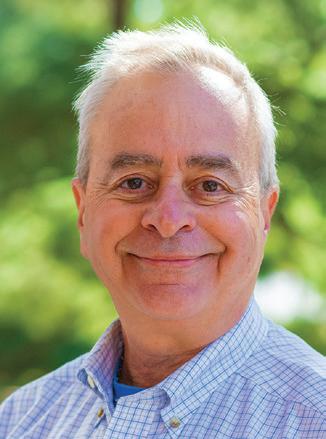
discipline, I still have a few more innings in the tank.”
Shackel joined the University of Maryland in 1996. He is the third community member from the department to receive the medal, joining Distinguished University Professor Mark Leone and the late Paul Mullins, M.A. ’91, in the renowned cadre of awardees.
Shackel will be presented with the J.C. Harrington Medal at the 2025 SHA conference in New Orleans. •
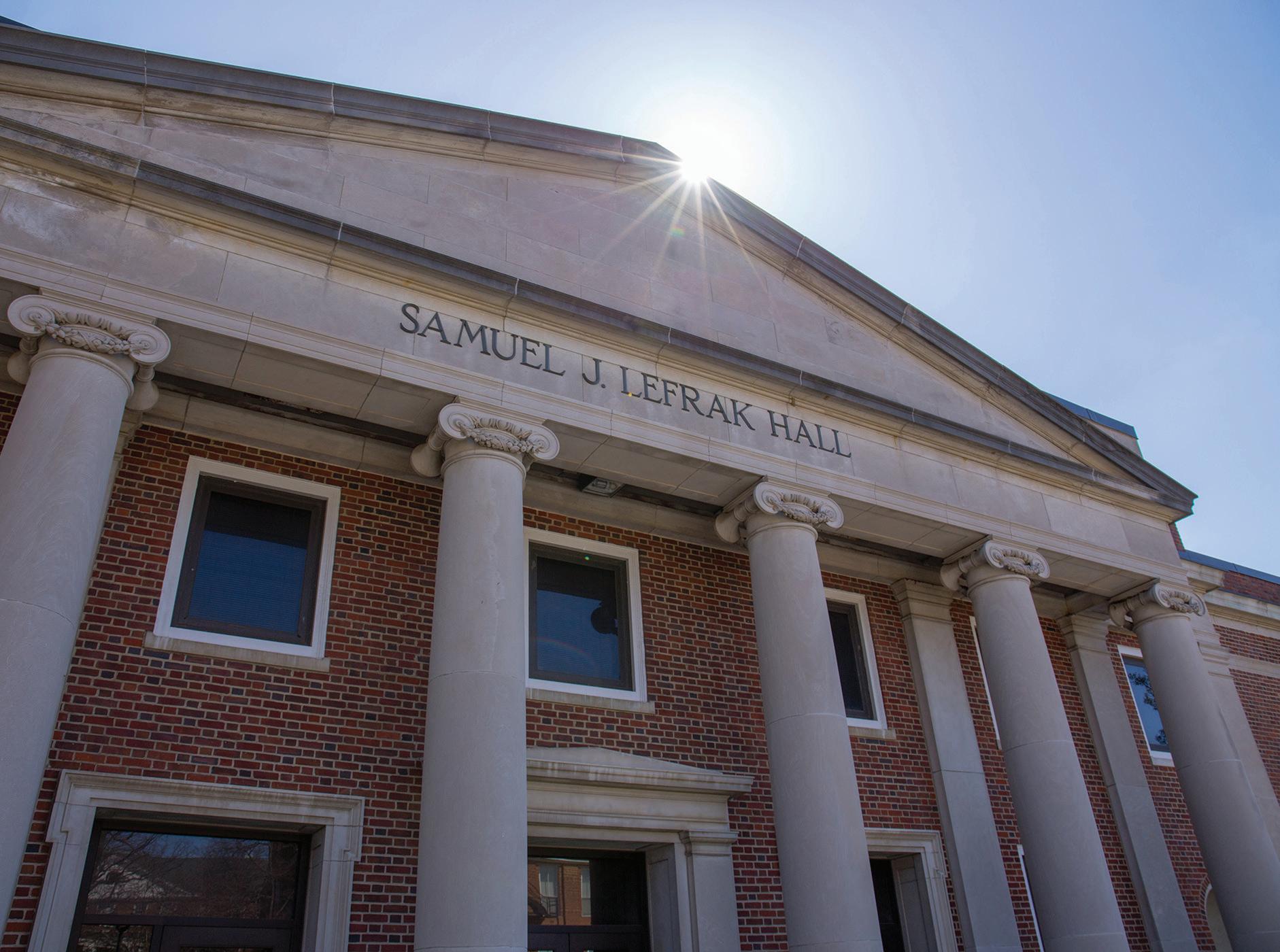
THE RACIAL DEMOCRACY CRIME AND JUSTICE NETWORK (RDCJN) is now housed at the University of Maryland under co-directors Rod K. Brunson and María B. Vélez. The RDCJN unites 200 scholars nationwide who undertake research and related initiatives that center race in the understanding of crime and justice.
This summer, the RDCJN will host its first Summer Research Institute at UMD for eight fellows. The institute promotes successful research projects and careers among faculty from underrepresented groups working in areas of crime and criminal justice.
During the institute, each participant will complete an ongoing project in preparation for journal submission or agency funding review.
“We hope our participants will gain information and experience, and that this institute will serve as a toolkit that will help them successfully navigate academic settings,” Brunson said.
The fellows’ proposed projects cover a wide range of timely topics, from improving policing to reduce fatal encounters, to examining parental incarceration and parental immigration detention.
Supporters of the RDCJN include the MacArthur Foundation, the Volcker Alliance, and the National Institute of Justice. •
DISTINGUISHED UNIVERSITY PROFESSOR
Gary LaFree, an expert on terrorism and the causes and consequences of crime, was selected as one of the recipients of his field’s highest honor, the 2024 Stockholm Prize in Criminology, from the Swedish Ministry of Justice.
LaFree’s award marks UMD’s third Stockholm Prize in Criminology since its inception in 2006. His Department of Criminology and Criminal Justice colleagues, John Laub and Peter Reuter (also a professor in the School of Public Policy), were honored in 2011 and 2019, respectively, with the prize.

The prize recognizes research achievements or results that reduce crime or advance human rights. LaFree was recognized along with fellow 2024 prizewinner Tom R. Tyler of Yale University.
“I am truly honored to have my name listed alongside the previous winners of the Stockholm Prize, many of whom I have idolized since I was a student,” LaFree said. “I have been very fortunate over the course of my career to be surrounded by an amazing group of colleagues and students, and to have my creative insights—especially on the legitimacy of legal institutions and governing bodies—recognized publicly. Many academics’ contributions go unnoticed, so I am not only proud of my work, but very grateful for how it has been received.”
This summer, Queen Silvia of Sweden will present LaFree with the Stockholm Prize in the same hall where the Nobel Prizes are awarded. He will also receive 500,000 in Swedish currency (approximately $45,000). The ceremony will be attended by members of CCJS. •
USING THE DAILY SCHEDULES OF PRESIDENTS from 1933 to 2016, Department of Economics Assistant Professor Thomas Drechsel recently studied whether presidents pressuring the Federal Reserve to lower interest rates leads to a measurable increase in the nation’s inflation rate.
Drechsel found more than 800 presidential interactions with Fed officials in total, and great variation in the number of interactions each president had. Former President Richard Nixon interacted with the Fed 160 times during his five years as president, for example, whereas former President Bill Clinton clocked only six interactions during eight years.
To measure political pressure and its impact on inflation, Drechsel used a quantitative approach that accounted for the possibility that some interactions with the Fed were unrelated, and that other factors—including fiscal policy, technological progress and international developments—might have influenced inflation.
Drechsel ultimately found that presidential pressure on the Fed can increase inflation: The political pressure Nixon applied in 1971, when he met with Fed officials 34 times, led to an estimated price level increase of 16% over the following decade.
“In the 1960s and ’70s, presidents putting pressure on the Fed led to inflation and inflation expectations to increase, which means that inflation becomes very entrenched,” said Drechsel.
THE DEPARTMENT OF ECONOMICS is proud to announce that it is bringing the renowned Review of Economic Studies (RESTUD) North American Tour to Washington, D.C. this fall.
Every year, talented economics Ph.D. students graduating from European institutions visit institutions in North America to present their work and meet with local
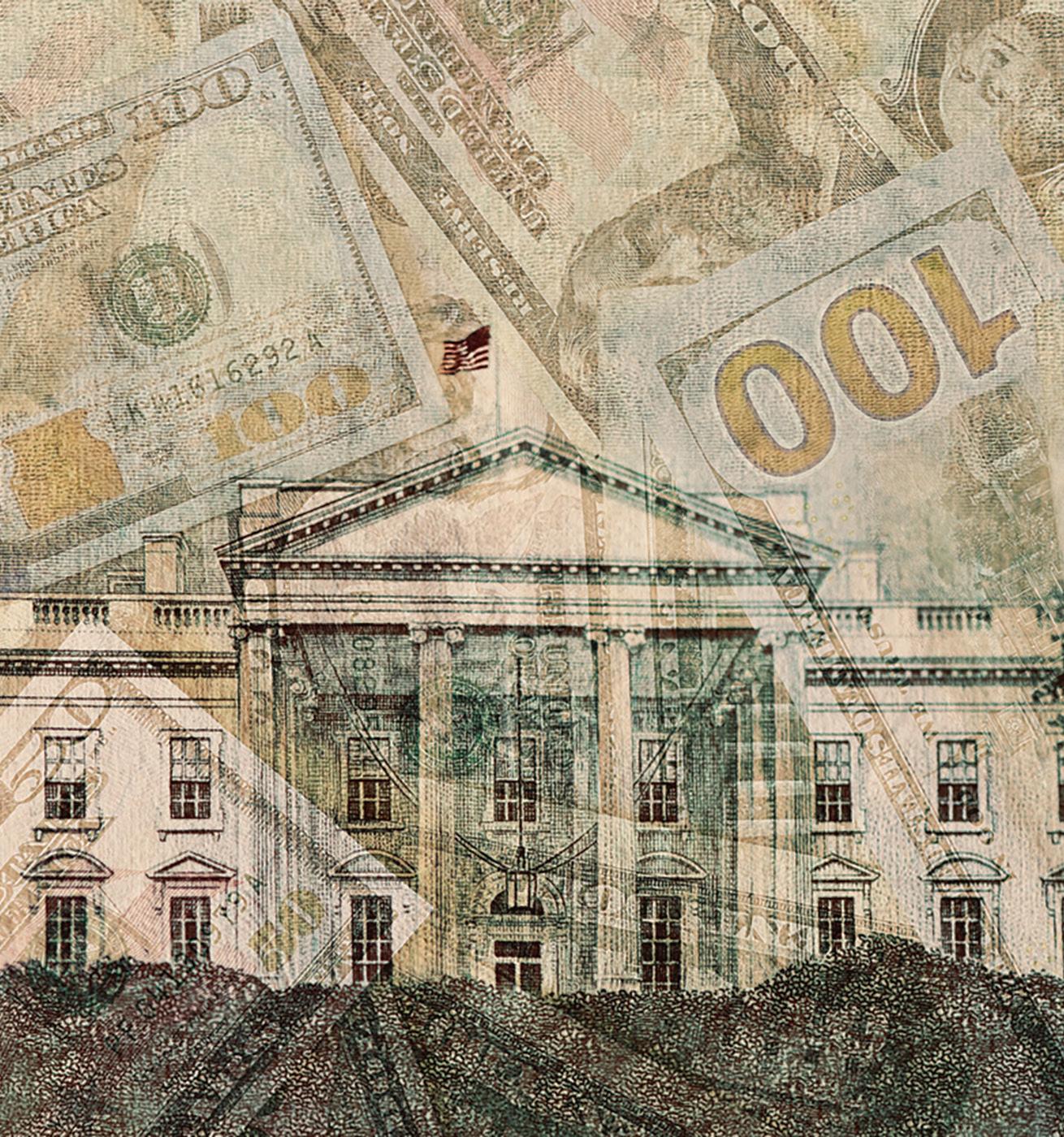
Looking ahead to what this might mean for the 2024 presidential election, he added, “I understand that there are many other important things at stake in this election, and I can see why a president’s potential pressure on the Fed may not be high on that list, but I do think this should be viewed as a more important issue than it currently is.” •
BSOS Online
Read more at go.umd.edu/drechselstudy24

and Washington University in St. Louis to become the host institutions for the 2024 edition of the RESTUD tour.
“This is a very prestigious event, and we are very happy to host it. The conference will be held in our downtown D.C. location, where we will invite economists from D.C.area institutions. We would especially be delighted to see our alumni at this event,” said Professor Boragan Aruoba
economists. This year, the University of Maryland will join Arizona State University, the Federal Reserve Bank of St. Louis,
The event will take place on Nov. 1 and will be held at 1400 16th St. NW, Washington, D.C. For details and to request an invitation, please contact econ-seminars@umd.edu. •
IN RECOGNITION OF HER RESEARCH leveraging Earth observation data and machine learning to improve food security and agricultural livelihoods across regions of Africa, Assistant Professor Catherine Nakalembe of the Department of Geographical Sciences was awarded the 2022 Al-Sumait Prize for African Development.
The award was established in 2013 by the Kuwait Foundation for the Advancement of Sciences.
“Research that leads to real-world impact is incredibly important—especially for addressing the grand challenges disproportionately affecting Africa, like health, food security, and education that Al-Sumait recognizes,” Nakalembe said.
Throughout her career, Nakalembe has addressed food insecurity in African regions and throughout the world by developing methods and building capacity for monitoring agriculture and early decision-making using satellite data. Nakalembe works to make a difference in regions of Africa on topics including smallholder agriculture, food security, early warning, and disaster assessment.

She is the NASA Harvest Africa Program Director, working with national ministries and development partners in Eastern and West Africa. NASA Harvest, NASA’s Food Security and Agriculture Program, is a multidisciplinary program commissioned by NASA and led by UMD to enhance the use of satellite data in decision-making related to food security and agriculture across the nation and world.
Nakalembe fosters collaboration in many of her projects and activities.
“I am honored to represent the University of Maryland, NASA Harvest, and NASA SERVIR with this globally esteemed Al-Sumait prize. I will share the $1 million award with the African Agricultural Technology Foundation,” Nakalembe said. •
BSOS Online
Read the full story at go.umd.edu/nakalembeprize
General Mills, Unilever Invest in UMD-Led Sustainable Agriculture Initiative
TWO CONSUMER GOODS GIANTS, General Mills and Unilever, made investments in a UMD-led initiative to evaluate the adoption and efficacy of climate-smart farming practices.
The Harvest Sustainable and Regenerative Agriculture Initiative (Harvest SARA) uses satellite measurements to shed light on the suitability of certain land management techniques for meeting the twin challenges of agriculture: Farmers and ranchers producing robust yields that are gentle on the ground from which they came.
“We are seeing more studies that use satellite data that measure the state of adoption of different practices like cover cropping, reduced tillage, and grassed waterways over very large areas, and we also are seeing studies that use satellite data to map agricultural outcomes like crop yield over very large areas,” said Alyssa Whitcraft, Harvest SARA’s founding executive director and a research professor in the Department of Geographical Sciences. “But there have been comparatively fewer studies that link
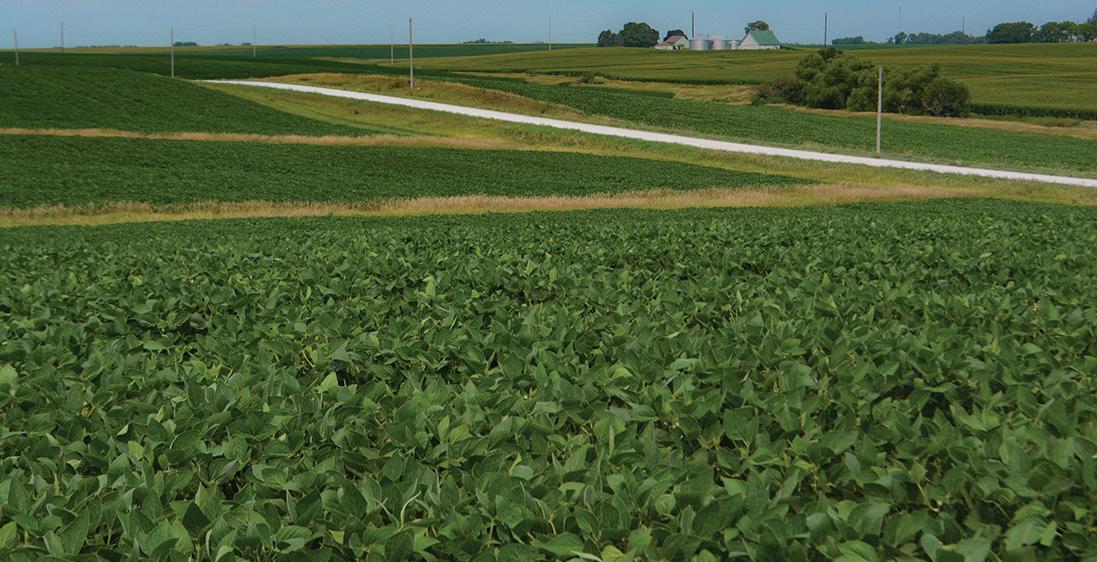
practices with outcomes, which we saw as a missed opportunity to support sustainable and regenerative transitions.”
General Mills and Unilever are hoping to help Harvest SARA close that knowledge gap. •
BSOS Online
Read the full story at go.umd.edu/HarvestSARA24
THOUGH AMERICANS ARE BECOMING FAMILIAR
with artificial intelligence due to the popularity of ChatGPT, behavioral and social scientists have been using machine-learning systems to explore complex issues for years.
Professor Jóhanna Birnir of the Department of Government and Politics (GVPT) and colleagues have spent years testing whether machine-learning models can be used to more quickly and accurately “code” decades of data on protests led by members of various ethnic groups. Coding has traditionally been done by humans, which is time-consuming and cost prohibitive.
Birnir published a new PNAS Nexus paper with GVPT doctoral candidates, a GVPT alumnus, and a University of Texas at Austin colleague and her Ph.D. students. The study shows that some machine-learning models are better than others.
Using data on ethnic groups from the All Minorities at Risk (AMAR) dataset, the researchers compared GPT with two earlier machine-learning models, Newsmap and BERT. The goal was to see which model had the best overall performance in coding 2021 news articles and websites for protests by AMAR ethnic groups.
BERT scored 0.020 points higher than GPT in its ability to identify only relevant data (precision), but GPT performed 0.149 points better than BERT in its ability to find relevant cases (recall).
“As we were writing this [paper], multiple new versions of GPT were released, and we would retest on each iteration, if possible,” said the paper’s lead author, Henry Overos, GVPT Ph.D. ’23, an assistant research scientist at UMD’s Applied Research Laboratory for Intelligence and Security. “Each new version tends to outperform the previous one. But the fact that BERT still performed almost as well as GPT shows there’s still room to grow, and that even relatively older models are still powerful tools for a variety of research tasks.”

The research shows that, contrary to current belief, it might not be wise to solely rely on humans for these types of projects— even if they undergo intensive training beforehand.
“While human coding is the gold standard, we found that when the students at UT Austin, who were specifically trained for this study, were coding cases that they were familiar with—in this instance, U.S. protests—they did better than the machines in terms of consistency. That wasn’t necessarily true for their coding of cases from unfamiliar contexts,” said Birnir. “In spite of their training, there was this unequal accuracy in coding by students who depended on prior knowledge.”
The authors suggest that AI models like GPT be utilized by researchers in conjunction with human coders to increase confidence in findings when the models mirror human results, and to give researchers pause when they differ. •
BSOS Online
Read more at go.umd.edu/GVPTAIstudy

Students interact at an event organized by Clinical Professor Kathy Dow-Burger, director of Neurodiversity and Autism Transition Services.
THANKS TO A MILESTONE $1 MILLION GIFT from Martin Friedman, ’92, The Department of Hearing and Speech Sciences (HESP) is expanding its services to individuals with autism or other neurodiverse needs.
Previously, HESP ran three separate programs serving students who are neurodiverse or who are on the autism spectrum. Now, these programs are unified as part of the Neurodiversity and Autism Transition Services (NATS).
All NATS programs support and encourage college-bound high school students who want to understand others, express themselves, and effectively navigate academic and campus life. A key mission of NATS is that participants develop these skills without compromising their individuality.
“I think Martin’s support validates, legitimizes, and acknowledges that neurodivergent and autistic students are valued contributors to our society, and that recognition and support is needed,” said Clinical Professor Kathy Dow-Burger, who directs NATS.
This gift builds on Friedman’s generosity to HESP. One NATS staff member has already been hired through Friedman’s $1 million gift. Three positions were created as a result of a $500,000 gift Friedman made in 2019, part of which also provided scholarships to students who couldn’t afford to participate in a similar program that was a precursor to NATS. •
BSOS Online
Read more at go.umd.edu/natsgift
IN THE SUMMER OF 2023, students participated in HESP’s first study abroad opportunity: A Global Perspectives in Service-Learning trip to Accra, Ghana led by Assistant Clinical Professor Eliza Thompson
For 10 days, a mix of 15 undergraduate and graduate students worked with individuals with autism, cerebral palsy, and other special needs in schools, clinics and nonprofits that include Hope Setters Autism Center, the Mission Clinic, the Korle Bu Teaching Hospital, Bright Steps International School, the University of Winneba’s Au.D. program, Talking Tipps Africa, and more.

Attending graduate students received clinical hours, and undergraduate students earned observation hours and gained life-changing perspectives.
“Witnessing the positive impact of communication strategies in a different context deepened my understanding of the field,” said Robyn Toler, who at the time was pursuing her M.A. in speech-language pathology. “My time in Ghana significantly shaped my career aspirations.”
While abroad, the students also found time to immerse themselves in Ghana’s culture and history. The first trip was so successful that Thompson has now led two groups of students to Ghana, with another confirmed trip planned for 2025. •
Article by Sofia Appolonio, JOUR '26; photo courtesy of Eliza Thompson.
BSOS Online
Read more at go.umd.edu/hespghana
IT CAN BE DIFFICULT FOR ANY 11- to 14-year-old to express how they’re feeling—let alone identify those feelings as symptoms of anxiety. Doing so is often even more difficult for autistic adolescents.

Assistant Research Professor Heather Yarger of the Department of Psychology (PSYC) is supporting this overlooked demographic through a new, four-year study. With the backing of a $780,000 Mentored Research Scientist Development Award from the National Institute of Mental Health, Yarger will use a combination of heart rate monitors and text message prompts to investigate whether distinct physical cues of the autonomic nervous system can serve as indicators for anxiety in autistic adolescents.
The results of a meta-analysis she published in the Review Journal of Autism and Developmental Disorders suggest that anxiety in autistic adolescents is associated with low levels of respiratory sinus arrhythmia.
“If I could demonstrate that this heart rate variability is a biomarker of anxiety, it could potentially be a way to assess for anxiety in nonspeaking autistic individuals,” she said. “That’s the ultimate goal, to be able to find a way to objectively assess the presence of anxiety in individuals who could not otherwise communicate that.”
Yarger is mentored by Dr. Stephen Thomas, director of the Maryland Center for Health Equity, in order to increase representation in her study. •
A CHILD’S TRANSITION AWAY from naptime may be a sign that their developing brains are increasingly able to process information.
"As a parent, I've had days where I didn't want my child to take a nap because I knew if they did, they would be up until midnight," said Associate Professor Tracy Riggins of PSYC. “But what cost is there to learning and memory if we’re forcing them to skip the nap?”
That’s the theory researchers from UMD and the University of Massachusetts Amherst are testing with a $6 million grant from the National Heart, Lung, and Blood Institute. It also could answer perennial questions about whether it’s harmful to keep tired preschoolers awake through the day so they sleep better at night.
Riggins is working with Professor Gregory Hancock of the Department of Human Development and Quantitative Methodology and Professor Rebecca Spencer of Amherst to track the brain development, memory performance and nap status of 180 children ages 3 to 4 1/2 for one year. Participants will meet with the research team three times, including visits to the Maryland Neuroimaging Center for an MRI and in the participants’ home.

The team is enrolling participants in this first longitudinal study of the cognitive, physiological and neural changes that accompany the transition that occurs when a child goes from taking a midday nap to no nap at all. •
Read more at go.umd.edu/rigginsnapstudy
A NEW COURSE THAT DEBUTED in the spring, “Bridging Perspectives: Critical Conversations Between Students and Police,” brought together an expert on racial inequities in policing, a UMD Police Department (UMPD) official and 20 undergraduates to explore the factors underlying the troubled past and present of police-community relationships in the United States.
Students and police officers “ultimately want the same goal: peace and harmony, and positive community relations,” said Professor Rashawn Ray of the Department of Sociology. “But often they’re coming from different sides of that equation, and the way to move forward often is through academic discourse and dialogue.”
The class, which was open to all majors, was co-taught by UMPD Capt. August Kenner, the department’s community engagement commander, and was based on a curriculum developed by the International Association of Chiefs of Police. Ray adapted the course material to be more tailored to his work on racial bias, community policing and how law enforcement is organized.
The course was designed to be one method of getting at the heart of a national dilemma: Overwhelmingly, according to Ray, Americans believe that someone who commits a crime should be charged accordingly. But at the same time, in the wake of the 2020 killing of George Floyd and a host of historical wrongdoings by police officers and departments across the
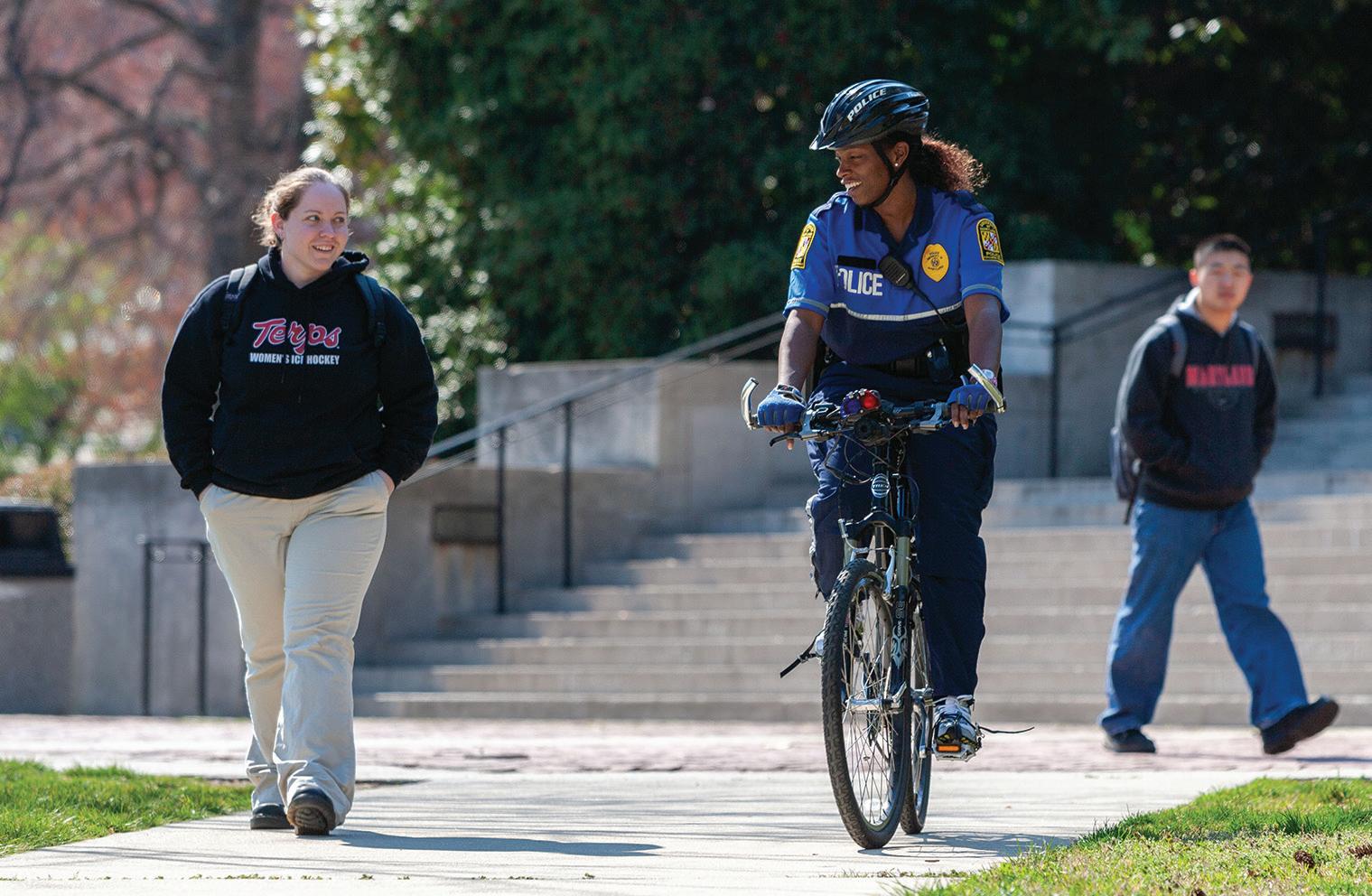
John
T. Consoli/University of Maryland
country, Americans—especially ones from marginalized communities—are wary of overpolicing.
Each week in the new class, students heard from guests who offered different perspectives on law enforcement, ranging from professors to federal agents to community organizers.
They also took part in virtual reality scenarios that offered different variables. Students reflected on how variables such as race and gender factor into police assessments and potential outcomes. This technology is used by police officers across the country to uncover unconscious bias. •
Story appears courtesy of Maryland Today. Read the full story by Sala Levin, ’10: go.umd.edu/socycourse24
UMD Sociologist Receives $1M Berggruen Philosophy Prize
DISTINGUISHED UNIVERSITY PROFESSOR
EMERITA Patricia Hill Collins, known for her pioneering research on the intersections of race, gender, social class and sexuality, received the Berggruen Prize for Philosophy, a $1 million award for advancing world-shaping ideas.
Collins focuses on how those intersections create unique experiences and perspectives for
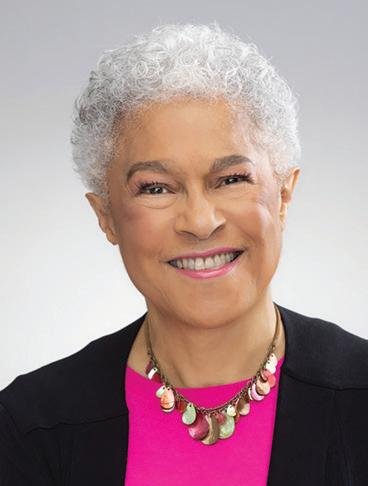
Leon McDonald, Janel Lee Photography
individuals—especially Black women—as well as shared experiences and perspectives on the human condition.
Collins plans to dedicate some of the prize money to libraries and library initiatives, and to support the American Sociological Association’s Minority Fellowship Program. •
BSOS Online
Read more at go.umd.edu/collinsaward
LED BY PROFESSOR HODA MAHMOUDI, the Bahá’í Chair for World Peace advances discourse on global peace through diverse events and activities.
In October, Amanda Ripley discussed best practices for navigating deep disagreements in a world of constant conflict.
An event with Bernard Avishai and Ezzedine Fishere of Dartmouth College explored the shock and upset that the Israel-Palestine conflict has brought to communities and campuses.
In February, the Chair launched the African American Legacies: Remembering Resilient Communities Project, which gathers recollections of 24 remarkable individuals, whose parents had come of age during the era of Jim Crow.
An event with Professor Robert G. O’Meally of Columbia University explored the connection between African American jazz, art, and literature.
In March, Provost Jennifer King Rice examined the current state of the U.S. education system, emphasizing the importance of “education as the great equalizer.”
THE ANWAR SADAT CHAIR for Peace and Development and Arts for All, in cooperation with the Department of Art, the Department of English, and the School of Music, hosted the inaugural Sadat Arts for Justice and Peace Program in April.
Students submitted multimedia works focused on the theme of self-expression and freedom of speech.
The program originated from the Sadat Art for Justice and Peace Competition, in conjunction with the Sadat Lectures for Peace, which have brought Nobel Peace Prize laureates to campus. It later developed into an annual competition that encourages art students to explore themes of peace and reconciliation.
These programs are led by Anwar Sadat Professor for Peace and Development Shibley Telhami •

Left to right: Bahá’í Chair community members Malik Wilson, Professor Hoda Mahmoudi, Dr. Kate Seaman, and Zoe Lebovic
Professor Zeena Zakharia of the College of Education gave a lecture on “Ordinary Solidarities: Toward an Anticolonial and Antiracist Agenda in Global Education Governance.” •
View upcoming events at bahaichair.umd.edu
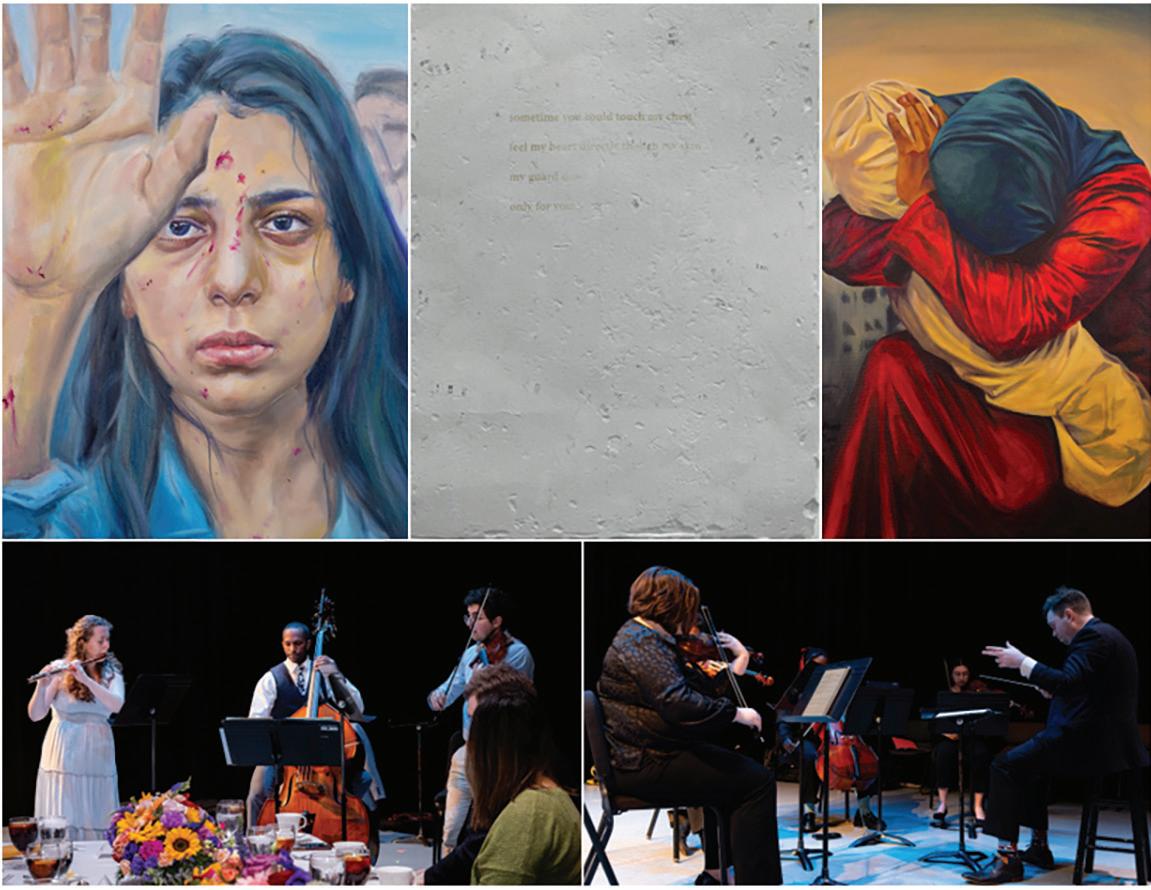
BSOS Online

ESTABLISHED IN 2024, the BSOS Dean’s Circle celebrates donors who support the college’s mission to Be the Solution to the world’s great challenges with lifetime giving totaling $100,000 or more.
In April, BSOS hosted a special dinner and ceremony to induct members into the Dean’s Circle. The evening featured remarks by Dean Susan Rivera and by Gary Rozier, ECON ’99, chair of the Board of Visitors.
Inducted at the event were: Katherine Pedro Beardsley and Robert Beardsley; Steve Cooker, GVPT ’77, and Kathleen Cooker; William Fishlinger, GVPT ’71, Joan Fishlinger, and Matthew Fishlinger, GVPT ’07; Joseph Meltzer, GVPT ’93, and Wendi Meltzer; Paul Rao, Ph.D. HESP ’85, and Martina Rao; K.M. Vijayalakshmi, M.A. ECON ’71, and Murliya Kusumadharagowda; and Jingli Yang, Ph.D. GEOG ’95, and Peter Li •
BSOS Online
Watch the video about the impact of the Dean’s Circle at go.umd.edu/deanscircleimpact
Karen Albert, M.A. SOCY ’96
Vice President and Head of Internal Audit and Internal Control, Constellium
Brandon Cole, GEOG ’01
Principal Cyber Security Analyst, U.S. Army
Dr. Yamalis Diaz, PSYC M.A. ’05, Ph.D. ’09
New York University Child Study Center, NYU Langone
Greg Feldman, GVPT ’90 CEO, Three Wire Systems
Felecia Love Greer, PSYC ’79
Retired Vice President, Large Customer Strategic Solutions and Customer Advocacy, Pepco Holdings, Inc.
Matthew J. Haas, GVPT ’93
Senior Managing Director, Jones Lang LaSalle
Aja Hill, ECON ’07
Modern Work Federal Civilian Customer Success Leader, Microsoft
Akash Magoon, Computer Science ’18 Co-Founder and CEO, Adonis
Sorabh Maheshwari, ECON ’01 Founding Partner, Churchill Real Estate Holdings
Michael Mann, GVPT ’02 Partner, Sidley
Joseph H. Meltzer, GVPT ’93 Founding Partner, Kessler Topaz Meltzer Check, LLP
Gary Rozier, ECON ’99 (Chair) Managing Director, Real Estate, Blue Owl Capital
Sachin Sachdeva, ECON ’97
Head of Global Program Delivery for Digital, Data and Operations, AIG
Ken Ulman, GVPT ’97 President, Margrave Strategies; Chief Strategy Officer for Economic Development, University of Maryland College Park Foundation
M.A. ’72, Ph.D. ’73, an academic with more than 40 years of experience in higher education, recently established the Dr.Virginia Lee Lussier Endowed Professorship in Behavioral and Social Sciences, specifically focusing on faculty in the fields of international relations and comparative politics. This gift, like her previous gifts, was made to recognize the role the Department of Government and Politics played in her career.

Lussier generously donated $1,040,000 to BSOS to establish this new professorship, which provides a powerful tool in recruiting and retaining exceptional faculty members focused on international relations and comparative politics. It provides them with financial resources, for two to three years, that they need to further important work and perform critical research in their field. This support thereby enhances the research, teaching, and scholarly pursuits of faculty members and their colleagues and students as they address the world’s challenges.
Lussier established two previous endowments, both for graduate students in international relations. One gift is for travel, and the other gift is for research: providing summer stipends, training grants, data collection, and more. Lussier’s motivation in providing all of these financial gifts came from her very positive experience, and the opportunities that she was given, in GVPT. Her prime department support came from Professor Emeritus Jonathan Wilkenfeld, for whom she worked as a graduate assistant from 1969 to 1971, and who served as her dissertation supervisor. •
The students, faculty, staff and friends of the College of Behavioral and Social Sciences thank our many donors for their generosity, which makes much of our work possible. Recent, transformative gifts to the college include:
n Al Carey, Urban Studies ’74 and Victoria Carey established a namesake Maryland Promise Scholarship with a gift of $500,000.
n With a gift of $50,000, Brandon Cole, GEOG ’01, and Taylor Cole, PSYC ’05, established a namesake Maryland Promise Scholarship.
n Dr. Sonalde B. Desai established a namesake current-use Research Fund in Sociology with a gift of $100,000.

n With a gift of $60,000, Ann Holmes—who recently retired from a long and distinguished tenure as senior assistant dean for finance and administration in BSOS—established the Cody A. Morris Memorial Endowed Scholarship
n With a gift of $90,000, BSOS Board of Visitors member Akash Magoon, CMNS ’18, established the Magoon Family Current-Use Scholarship.
n Dr. Aparna Mathur, ECON Ph.D. ’05 and Dr. Kartikeya Singh, ECON Ph.D. ’05, established a namesake graduate student support fund in Economics with a gift of $50,000.
Learn more at go.umd.edu/lussiergift24
n With a gift of $50,000, Dwayne Middleton, ECON ’90 established the Middleton Family Scholarship.
n Matthew Tackman, ECON ’02, and Rebecca Tackman, BMGT ’03, established a namesake current-use scholarship with a gift of $25,000.
Office of External Relations
0145 Tydings Hall
7343 Preinkert Dr. University of Maryland College Park, MD 20742
The BSOS Maryland Promise Scholarship supports need-based scholarships for undergraduate BSOS students.
As part of The Clark Challenge for the Maryland Promise Program, your gift will be matched dollar for dollar. go.umd.edu/bsosmarylandpromise
Be the Solution is produced annually by the Office of External Relations, College of Behavioral and Social Sciences. bsos.umd.edu





We gratefully acknowledge the numerous contributions of staff members from Maryland Today and in the Office of Marketing and Communications for this publication. Covers and interior pages contain recycled content.
Dr. Susan M. Rivera
Dean and Professor, College of Behavioral and Social Sciences
Kenny Beaver, ’07
Chief Development Officer
Laura Ewald Ours
Senior Director, Communications and Marketing
Tom Bacho
Director, Creative Services
Rachael Grahame, ’17
Associate Director, Communications and Media Relations
Sofia Appolonio, Journalism ’26
Editorial Intern
Chris Campbell
Design and Production